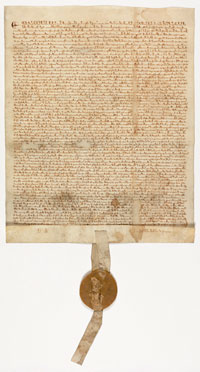Overview
Timeline
Feudal System
Guilds
Medieval Monasteries
Glossary and Terms
Knights and Castles
Becoming a Knight
Castles
History of Knights
Knight's Armor and Weapons
Knight's coat of arms
Tournaments, Jousts, and Chivalry
|
Culture
Daily Life in the Middle Ages
Middle Ages Art and Literature
The Catholic Church and Cathedrals
Entertainment and Music
The King's Court
Major Events
The Black Death
The Crusades
Hundred Years War
Magna Carta
Norman Conquest of 1066
Reconquista of Spain
Wars of the Roses
|
Nations
Anglo-Saxons
Byzantine Empire
The Franks
Kievan Rus
Vikings for kids
People
Alfred the Great
Charlemagne
Genghis Khan
Joan of Arc
Justinian I
Marco Polo
Saint Francis of Assisi
William the Conqueror
Famous Queens
|
